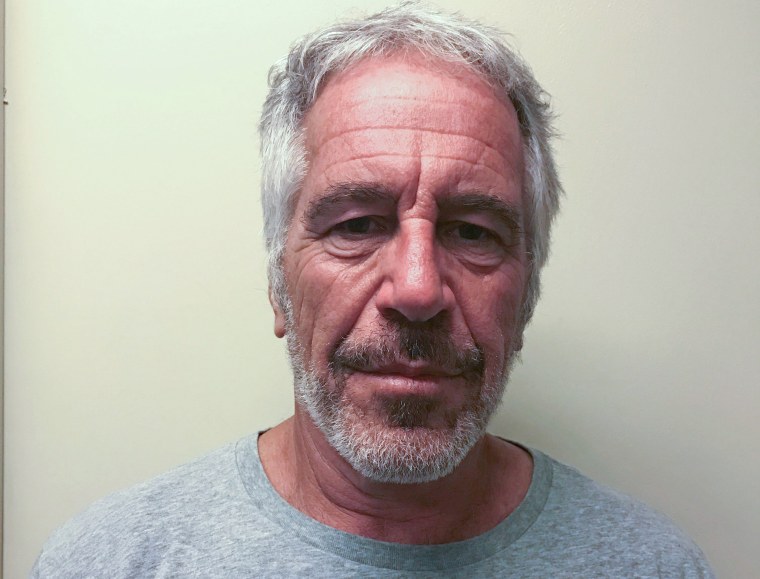LONDON — Britain's Queen Elizabeth II is well known for saying very little to the media. And recent controversy swirling around her family appears to justify the maxim that she is widely believed to live by: “Never complain, never explain.”
A sign that the unwritten rule has been sorely tested came Wednesday when Prince Andrew stood down from his public role “for the foreseeable future,” four days after a BBC interview in which he defended his relationship with convicted sex offender and disgraced financier Jeffery Epstein.
"I think, probably, Prince Andrew hugely regrets doing the interview because it's led to the end of his official role within the royal family," Roya Nikkhah, the royal correspondent at Britain's Sunday Times, told NBC News.
"I think this is going to mean much more scrutiny on the people that are associated with the organizations they are associated with, the way they conduct themselves in terms of the media, and possibly a whole review of their PR strategy."
Buckingham Palace said in a statement that this was his "personal decision."
Andrew's BBC interview was an attempt to draw a line under damaging allegations relating to him and his relationship with Epstein. In the interview, the Duke of York denied having sex with Virginia Roberts Giuffre, who says she was trafficked by Epstein, when she was 17. Andrew said he had no recollection of ever meeting Giuffre and that he was at a pizza restaurant with his daughter on the day in 2001 she alleged they had a sexual encounter.
But instead, Andrew was panned for his defense of his friendship with Epstein, who died by suicide Aug. 10, and what was seen as some as a failure to show any sympathy for the victims.

In Wednesday's statement, he said, "I deeply sympathize with everyone who has been affected and wants some form of closure."
Gloria Allred, a lawyer representing some of Epstein's victims, has called on Andrew to assist with any U.S. criminal investigation, something Andrew says he is willing to do "if required."
His standing down came after days of blistering coverage. On Monday, a former adviser to ex-Prime Minister David Cameron wrote a newspaper column accusing Andrew of using the N-word in a private meeting in 2012. Sources at Buckingham Palace told the Evening Standard newspaper, which broke the story, that this claim is untrue.
The issue was compounded after a former senior Cabinet official said in a podcast, reported by the Evening Standard newspaper, that after a state dinner for the Saudi royal family, the prince made “racist comments about Arabs that were unbelievable.” Buckingham Palace sources denied to the paper that the prince used that word, saying he would never use such language.
The royal family is no stranger to controversy. But Andrew's decision to speak to the press — reminiscent of Princess Diana's famous BBC interview in 1995 — is a rare thing and appears to have made matters worse.
Even before the interview was broadcast, there were signs that his association with Epstein after the American's conviction — Andrew says he hadn't spoken to Epstein since 2010 — had hurt Andrew's reputation and caused businesses to try and distance themselves from the royal.
Professional services firm KPMG didn’t renew its sponsorship of the prince’s entrepreneurship initiative, Pitch@Palace, after it came to an end as scheduled in October.
Andrew has now declared he would step back from public life, but it remains unclear whether that means he will resign from the more than 200 charities to which he is a patron.
Despite the furor, Steven Barnett, a professor of communications at the University of Westminster, says there is little evidence that the affair has hurt the wider royal brand.
"The issue for Andrew is that it was such a calamitous performance. If you’re going to do something like that you’ve got to show proper contrition," he said.
He added, however, that “the queen insulates the institution very effectively. As long as she survives, it’s reasonably safe."